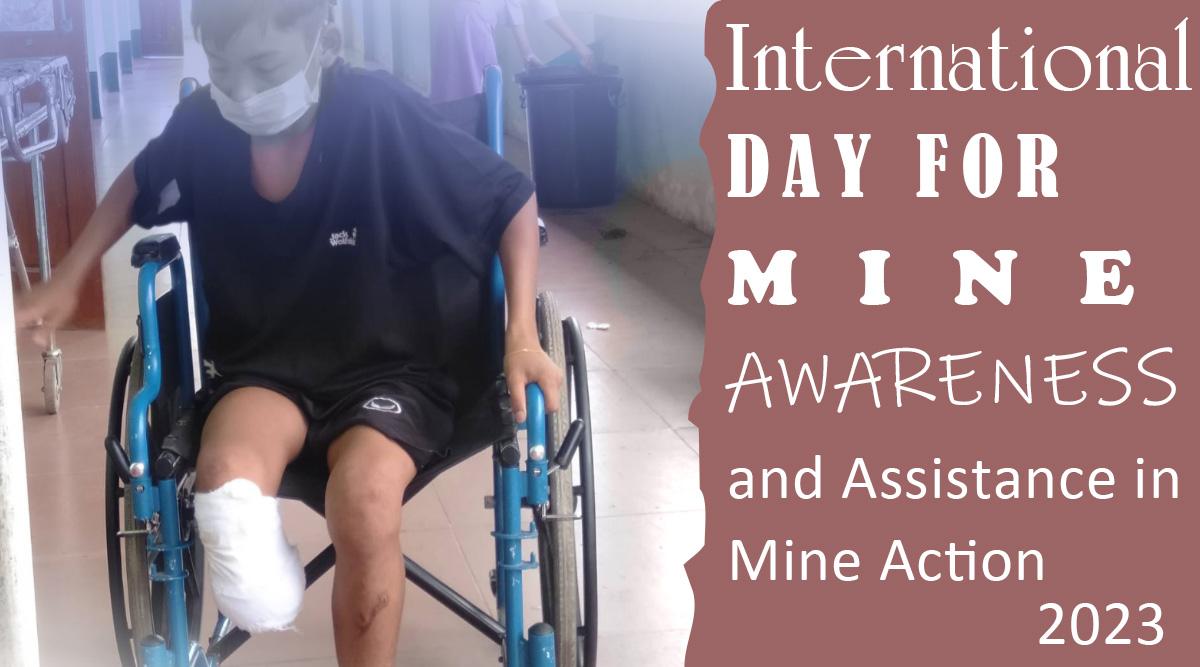Today, April 4th 2023, marks the 18th International Day for Mine Awareness and Assistance in Mine Action, since its establishment by the General Assembly in 2005. And yet, landmine and unexploded ordnance contamination continue to increase in Southeast Burma, posing a significant threat to the security, safety and livelihood of villagers in the area. The Burma Army has actively engaged in the use of landmines in warfare since 1969 and it is still one of the twelve remaining landmine producers globally.[1] Although landmines have been reportedly used by all armed actors as offensive and defensive strategies against their oppositional forces, the Burma Army and its allied forces have deliberately used landmines as well as other explosive ordnance as direct threats against civilians in Karen State. Today, the Karen Human Rights Group (KHRG) calls on local stakeholders as well as the international community to pay attention to the situation in Southeast Burma, take concrete action to put an end to the heinous crimes perpetrated by the military junta against the civilian population, and protect villagers living in conflict-affected areas, including by supporting victims/survivors of landmine explosions.
From February 2021 to August 2022, KHRG documented 33 landmine and UXO incidents involving civilians, causing at least 31 injuries and 14 deaths in Karen State. Due to underreporting, the actual number of casualties resulting from landmines and UXO-related incidents is expected to be higher. According to reports received since 2021, many landmines had been planted by the Burma Army and its allies in civilian areas; along the more easily-navigable pathways; near critical infrastructure, including medical clinics and religious buildings; in and around areas that villagers depend on for their livelihood; and in areas that villagers had to use to access their plantations or farmlands. The Burma Army has also used villagers in Karen State as human shields and human minesweepers, forcing them to walk in front of patrols in possible mined areas to protect soldiers from attacks and landmine-related injuries.
On January 9th 2022, a 45-year-old male villager from Meh Klaw village tract, Bu Tho Township, Mu Traw (Hpapun) District, stepped on a landmine when he went to a nearby forest to pick Daw Ka Tha (commonly known as the Indian Trumpet tree) fruits to sell and buy rice for his family with the money he earns. The victim passed away after being sent to the hospital and left behind his wife and his 15-year-old daughter. The family did not receive any support and faced difficulty in earning a livelihood after the death of the father. The incident also heightened villagers’ fear to travel in the area. In another instance, on November 16th 2021, the junta-affiliated Border Guard Force (BGF) Company #3 entered a village located in Pwa Gaw village tract, Hpa-an Township, Doo Tha Htoo District, and destroyed the medical clinic buildings and looted materials, including medicine. They also threatened local villagers not to enter the clinic compound anymore. Villagers assume the BGF planted a landmine in the clinic and did not feel safe going to the clinic.
While KHRG’s reports show the active use of landmines by all armed actors in Burma, only the Burma Army and its allied forces have systematically used landmines directly targeting civilians, in violation of Protocol II (Art. 3.7) and Protocol 3 (Art. 2.1) to the Convention on Certain Conventional Weapons. Both Protocols prohibit the use of mines and other explosive devices with a deliberate intention against either the civil population or civilian objects. Moreover, given that landmines and explosive ordnances are inherently indiscriminate and have indiscriminate effects, using them in any circumstance means violating the principle of distinction between civilians and combatants, which is the fundamental principle of customary international humanitarian law. The Burma Army’s systematic use of civilians as human minesweepers constitutes a war crime.
While mine risk education provided to civilians by local civil society organisations increased over the years prior to the 2021 coup, its effectiveness remained limited, and will remain limited as long as landmines and UXO remain unmarked.[2] In addition, although most victims and their families receive some kind of support from various stakeholders after the incident, notably to cover the medical costs, they do not benefit from assistance programmes that would help them overcome the consequences of the incident on their ability to secure their livelihoods. Families who lose their main breadwinner are left vulnerable to hardship. Similarly, survivors usually sustain serious injuries, including imputations, that prevent them from working the way they used to.
On this April 4th 2023, the Karen Human Rights Group (KHRG) wants to raise awareness on the impact of landmine and UXO contamination in Southeast Burma and demand further support for villagers. Likewise, KHRG condemns the use of such indiscriminate weapons, which significantly impact civilians by causing grievous threats to their safety, livelihood, and lives. Bringing an end to the use of landmines is critical for civilians’ safety and survival. As a result, KHRG urges:
- all armed actors to distinctly mark landmine and UXO-contaminated areas and properly inform local villagers about their location;
- local actors to continue and expand the clearance and removal of landmines, unexploded ordnance (UXO), and all other explosive remnants of war with safe procedures;
- humanitarian and other relevant actors to work with local service providers in implementing appropriate and effective long-term assistance services for survivors of landmines and other explosive ordnance-related incidents and their families;
- the international community to support local actors in enhancing programs to provide and equip villagers with comprehensive mine risk education services in rural areas, with an emphasis on children;
- all relevant regional and international stakeholders to take immediate action to bring military leaders in Burma, who ordered and/or permitted the targeting of civilians, to justice in international courts and tribunals.
Media contacts:
Saw Nanda Hsue, KHRG Advocacy Coordinator: hsue@khrg.org
Footnotes:
[1] International Campaign to Ban Landmines (ICBL), “Landmine Monitor 2021”, November 2021.


